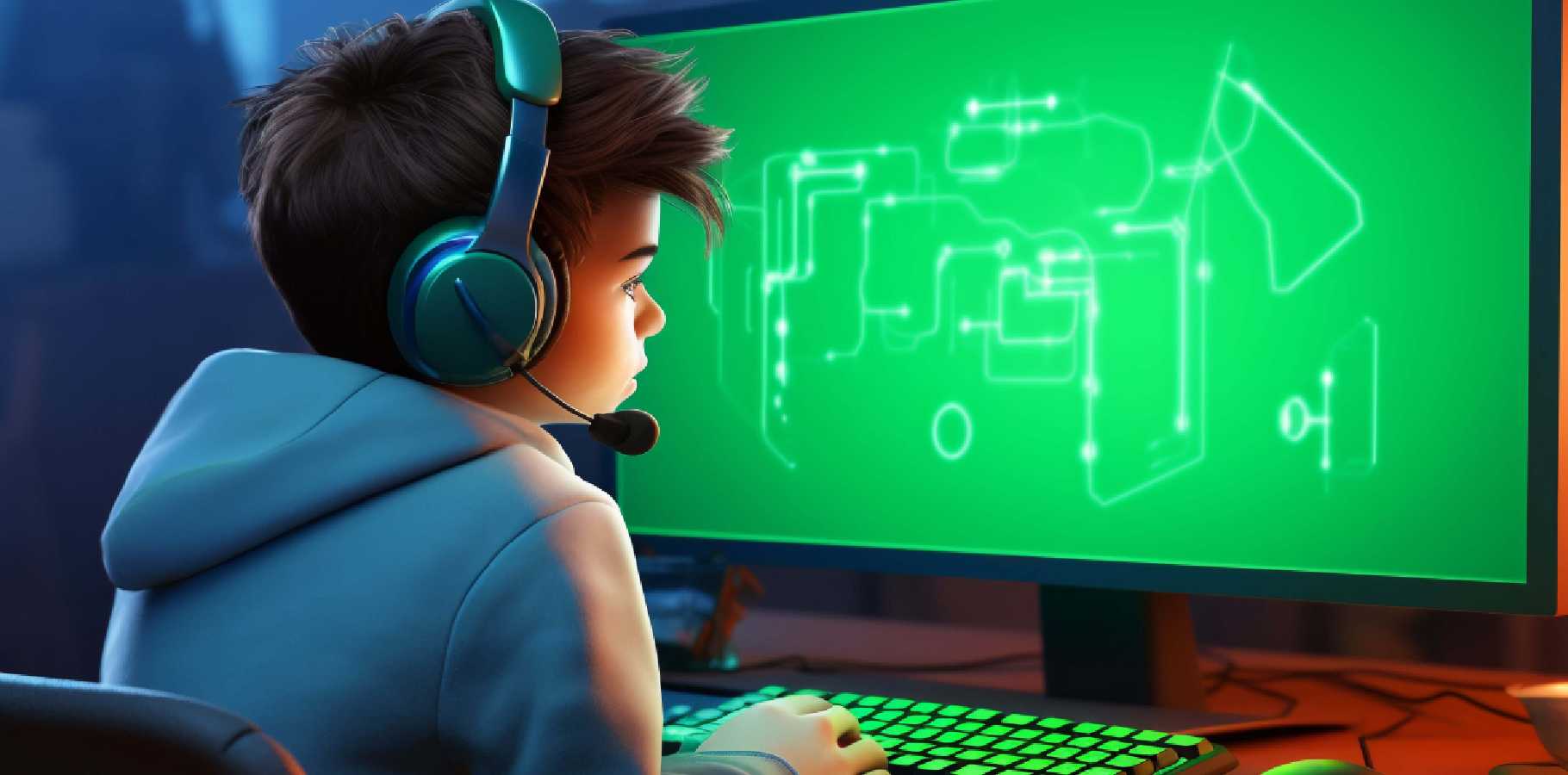Choosing the right game development partner for your indie studio can make or break your project. Read this insightful blog to discover actionable tips and insights to help you find a partner who will understand your vision, align with your goals, and ensure success in every stage of development.
Bringing a game vision to life is the dream of every indie game studio. It is an exciting journey combined with one of the most critical dilemmas – How to choose a game development partner?
Whether you’re an indie creator with a groundbreaking idea or a game studio aiming to level up, this decision can make or break your game. That is why choosing the right partner is crucial: a partner who does more than just bring technical skills to the table—someone who understands your vision, aligns with it, boosts your creativity, and provides the expertise and resources needed to turn your ideas into reality. In this blog, we’ll explore tips to help you find the best indie game developers who meet your goals and help your game reach new heights.
Before you search for the perfect development partner, you must have a crystal-clear understanding of your game’s vision. This means diving deep into your concept and documenting everything from core gameplay mechanics to the game’s purpose, technical requirements, and target audience preferences.
Draft your game’s genre, core mechanics, and the experience you wish to deliver. Think about what makes your game unique – perhaps it’s an innovative puzzle mechanism or a compelling narrative structure. Consider your must-have features and distinguish them from nice-to-haves, as this will help potential partners understand your priorities and provide more accurate estimates.
Your budget and timeline expectations should also be realistic and well-defined. Remember that indie game development costs vary widely depending on scope and complexity, so being upfront about these constraints will help you find partners who can work within your parameters while delivering the expected quality.
Technical process goes far beyond just knowing how to code. When considering a potential partner’s technical expertise, look for a team that deeply understands your chosen game engine, Unity and Unreal Engine, and development platforms. A strong indie game development partner should also have experience dealing with your game’s specific challenges. For instance, if you’re planning a multiplayer experience, you should have a proven track record of implementing networking solutions and managing server infrastructure. Their knowledge should extend to optimization techniques, ensuring your game runs smoothly across all target platforms.

A development partner’s portfolio tells a story about their capabilities, creativity, and reliability. When reviewing their past work, look beyond the surface-level polish of their games. Analyze how they’ve handled different genres, art styles, and technical challenges. Pay attention to the consistency in quality across their projects and how well they’ve executed various game mechanics.
If you want to hire game developers for indie projects, Identify similar projects that match your game vision. For instance, if you plan on creating a stylized 2D game, look for studios with experience and expertise in similar art styles and mechanics. This will give you confidence in their ability to meet your targets and expectations.
Remember: A strong track record isn’t just about successful launches – it’s about how they’ve handled obstacles and learned from each project.
Effective communication can make or break a development partnership. The best partners maintain open, honest, and proactive communication throughout the project lifecycle. They should be able to explain complex technical concepts in understandable terms while being receptive to your ideas and concerns.
When considering game development services for indie teams, look for partners who demonstrate genuine interest in your project during initial discussions. They should ask thoughtful questions about your vision and offer constructive feedback based on their experience. During discussions, note how promptly they respond to queries and how open they are to feedback. Cultural compatibility is equally important – your partner should share your values and approach to game development, making collaboration smoother and more enjoyable.
Strong project management is the backbone of any successful game development. Your ideal partner should have a well-defined development methodology that adapts to your project’s needs. They should be able to explain their process for breaking down complex features into manageable tasks, tracking progress, and maintaining quality throughout development.
Evaluate the project management tools and methodologies your potential partner uses. A structured approach—such as Agile or Scrum—equips efficient task handling, regular updates, and flexibility to adapt to changes. For outsourcing indie game development this ensures transparency and accountability at every stage of development.
Quality assurance should also be integrated into their development process, not considered an afterthought. Look for partners who perform regular testing, maintain comprehensive bug-tracking systems, and have transparent processes for implementing feedback and improvements.

Game development doesn’t end at launch. Choose a partner with long-term support services and a history of working on post-launch projects. A great indie game development partner should have a definite plan for post-launch support, including bug fixes, performance optimizations, and content updates. They should understand the importance of maintaining player engagement and be prepared to help your game evolve based on player feedback and market demands.
Consider their live operations experience and ability to scale support based on your game’s success. A good partner will help you plan for various scenarios and ensure your game can grow sustainably.
When looking for a development partner, many indie developers fall into predictable traps that can hinder their projects’ success before they truly begin. Choosing a partner only based on low costs can lead to compromised quality and costly corrections. Likewise, speeding into partnerships without prior checks or contracts can result in misaligned expectations and potential legal complications. Here are critical mistakes to watch out for:
At Juego, we understand that creating an exceptional indie game requires more than technical expertise – it demands passion, creativity, and unwavering commitment. With a proven track record of collaborating with indie developers and global brands, we provide tailored game development services for indie teams that align with your vision and goals. Here’s why we could be your ideal partner:
Choosing the right development partner is crucial in your indie game’s journey. By defining your goals, researching potential collaborators, and fostering transparent communication, you can build a partnership that leads to success. With a trusted partner like Juego Studios, you can hire game developers for indie projects who bring your vision to life while ensuring your game resonates with players and achieves its full potential in the market.
The partner selection process is a critical phase that shouldn’t be rushed. Typically, a thorough selection takes 2-4 weeks but can extend to 6-8 weeks for more complex projects. This timeline allows you to conduct thorough research, schedule multiple meetings, review proposals, check references, and perform technical assessments. During this period, you’ll want to have in-depth conversations, request technical demonstrations, review portfolios, and ensure the potential partner understands your game’s vision and technical requirements.
During the first call, outline your game’s vision, target audience, and development goals. Provide details about your project’s scope, budget, and timeline. Pay attention to the partner’s questions—insightful inquiries about gameplay mechanics, user experience, or monetization strategies indicate a strong understanding of your needs. Use this opportunity to gauge their enthusiasm, problem-solving abilities, and alignment with your objectives.
Protecting your intellectual property is crucial. Always use Non-Disclosure Agreements (NDAs) before sharing detailed game concepts. Choose reputable partners with verified track records and clear IP protection policies. Consider filing provisional patents for unique game mechanics and only disclose information on a need-to-know basis during initial discussions. Document all communications and keep detailed records of your original concept development.
Warning signs include partners who provide insufficient estimates, avoid discussing potential challenges, need more tangible references, lack transparency about their development process, or seem more focused on securing payment than understanding your vision. Be cautious of incredibly low-cost quotes, promises of unrealistically short development timelines, and partners unwilling to provide detailed project breakdowns. Trust your instincts and conduct thorough due diligence.
Maintain active but balanced involvement. Schedule regular milestone reviews, provide timely feedback, and be available for clarifications. However, trust your development partner’s expertise and avoid micromanaging. Establish clear communication channels, participate in sprint reviews, and maintain an open dialogue about project progress, challenges, and potential adjustments.
Prototyping is crucial because it allows you to test and refine specific gameplay mechanics before committing to full-scale development. Creating a prototype can identify potential issues early, iterate on designs, and ensure the core mechanics resonate with your intended audience. This process minimizes risk, saves time, and ensures smoother production in later stages.
Comprehensive post-launch support should include bug fixes, performance optimizations, platform updates, and content expansions. Discuss the expected support duration, response times for critical issues, and any additional costs. A good partner will help you plan for live operations, including player feedback integration, potential monetization strategies, and long-term game evolution.